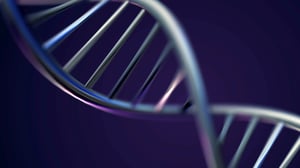
Cancer suppressing gene discovered.
A study from the University of Melbourne has discovered a vital genetic mechanism that sheds light on how a vital cancer-suppressing gene prevents tumors from developing. This can help to identify patients that are at higher risk for the development of specific cancers. This can also create new and safer treatments that target cancer development.
The p53 gene has been known about for decades and the subsequent p53 protein it encodes is a major protective factor in the development of cancer. It is known as the "tumor suppressor gene". Mutations or dysregulation in this gene are found to be causative in over half of all cancers and even found to play a role in over 70% of colon and pancreatic cancers.
The protein acts as a "guard" in the cell division process, identifying DNA damage or mutation. If the DNA damage or mutation is too significant to prepare, the p53 signals apoptosis which triggers cell death before mutations can replicate. If the p53 gene is not working properly, then damaged cells can replicate causing cancerous tissue to grow and multiply. (Haridy, 2018)
Cancer IV: Recent studies at the NIH (National Institute of Health), conducted by Harvard Medical School researcher, Mark Levin, M.D. have demonstrated the anti-tumor effect of high dosage IV Vitamin C. This same effect does not occur with oral vitamin C. This therapy was originally developed by Nobel Prize Winner, Dr. Linus Pauling, expanded upon by Dr’s. Klenner and Cathcart and, more recently, Hugh Rirodan, M.D. Intravenous, high-dosage Vitamin C also reduces the side effects of chemotherapy and radiation for those receiving conventional medical therapies. This formula can be done in low, medium and high doses. Patients must do certain labs before they are cleared for high dose Vitamin C. We have several adjunctive natural plant chemotherapies that can be added to your formula. Visit these links for more information on VItamin C for Cancer treatment.
Call us to schedule your very affordable and short consultation today. We recommend that patients take Vitamin C daily and find a comfortable daily dose somewhere between 500mg up to 3000 mg for some. The dose depends on an individual's constitution, their medical condition and bowel tolerance. Foods high in vitamin C are raw peppers, fresh oranges, orange juice, black currents, citrus fruits and parsley. High vitamin C rich foods are not enough to provide therapeutic clinical changes so we need to take Vitamin C supplements and I.V. Vitamin C drips.
Haridy, R. (2018, June 13). Breakthrough research answers mysteries behind vital cancer-suppressing gene. Retrieved from https://newatlas.com/tumor-suppressing-gene-p53-mechanism-discovered/55015/?utm_medium=email&utm_campaign=2018-06-13 143910 USA Daily Basic 2018-06-13 144432 Solar-powered harvester sucks drinkable water out of thin air&utm_content=2018-06-13 143910 USA Daily Basic 2018-06-13 144432 Solar-powered harvester sucks drinkable water out of thin air CID_31b9b71892f079b24415f63eec000160&utm_source=Campaign Monitor&utm_term=Breakthrough research answers mysteries behind vital cancer-suppressing gene


